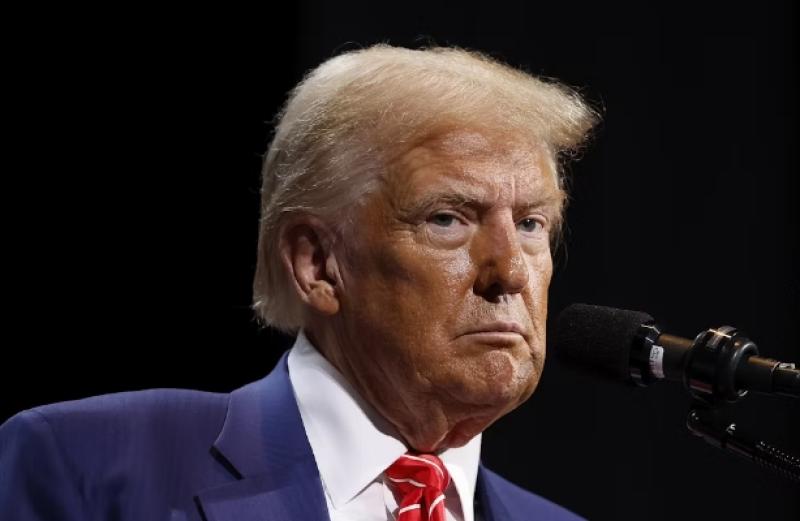Trump’s Angry New Rants at Jack Smith Signal Darker Aims



In an interview on Thursday, Donald Trump seethed with anger at Jack Smith and confirmed that if he’s elected president, he’ll fire Smith from the role of special counsel in “two seconds.” That’s bad enough, but at the same time, Trump also enthused that the Supreme Court had given him immunity from criminal prosecution. He said this as a boast. We think this neatly reveals something about Trump’s intentions for a second term: he really does think that if he wins, he will be able to function as president with something like absolute impunity, totally unaccountable to any laws. Today, we’re talking about all this with former federal prosecutor Barbara McQuade. She’s going to walk us through what would actually happen if and when a newly elected President Trump fired Jack Smith and what he could do as a totally unshackled president. Great to have you back on, Barbara.
Barbara McQuade: Thanks, Greg. Great to be with you.
Sargent: Trump was talking to one of his favorite interviewers, Hugh Hewitt, and at different points, Trump unloaded on Smith in all kinds of ways. He ranted that Smith is a scoundrel, a mean and very dishonest man. Trump complained about agents searching Mar-a-Lago. Trump insisted that Smith had lost all the federal cases against him or was in the process of losing them. And perhaps most important of all was this exchange.
Hugh Hewitt (audio voiceover): You’re either going to have to pardon yourself or you’re have to fire Jack Smith. Which one will you do?
Donald Trump (audio voiceover): It’s so easy. It’s so easy. That guy’s a crooked person. We got immunity at the Supreme Court. It’s so easy. I would fire him within two seconds.
Sargent: Barbara, this confirms that if Trump wins, he’ll cancel ongoing federal prosecutions of himself, which we should remember are for very serious alleged crimes, including ones related to a violent insurrection and the theft of important national security secrets. What’s your immediate reaction to all this?
McQuade: My immediate reaction is I’m not surprised that Donald Trump would say that or that he would follow through and do that. But it really is a breathtaking statement. Since the Watergate era, we have had these norms at the Department of Justice that enable an attorney general to appoint a special counsel when a president or some cabinet official is under investigation to protect the independence of the Department of Justice and the public confidence in the Department of Justice. Of course, so much has changed since that time. Even in Trump’s first administration in 2016, he had to endure a special counsel investigating whether he had committed crimes. But Trump now will be prepared to completely destroy those norms by ordering his attorney general to fire Jack Smith or simply doing it himself. As the chief executive of the executive branch, he does have the authority to do that.
After Watergate, presidents abided by those norms to preserve that independence, but Donald Trump has made it clear he has no interest in that whatsoever. And so he will absolutely follow through on that threat, which means that we no longer have a separation between the Department of Justice and the White House, which has existed in a very formal structure since the 1970s.
Sargent: I want to home in on what Trump said about immunity in this interview. In the context of suggesting he’d cancel prosecutions of himself if elected president, Trump said, “We got immunity at the Supreme Court.” What he’s referring to is: In the January 6 case, the Supreme Court ruled that Trump has immunity from prosecution for certain types of official acts as president. The courts are still sorting out how that will apply to his alleged insurrection-related crimes, which arguably were official acts. But Barbara, what I hear there is that he thinks he’s got blanket immunity in a second term. What do you make of those comments?
McQuade: Well, to some extent he does, because of the court’s ruling that a president is immune from criminal prosecution for official acts within their core constitutional duties. Of course, there’s that middle layer where official acts that are not within a president’s core constitutional duties are presumptively immune, but that can be rebutted by a prosecutor. And then personal acts, which are not official duties, which are not immune from prosecution. But he’s actually right here. If he were to fire Jack Smith, that would be within his official conduct, and, I would suggest, within his core constitutional duties. The Supreme Court said all of that alleged activity that Donald Trump was charged with relating to the Justice Department—of sending out a letter to Georgia and directing them to reconvene their legislature to select a new slate of electors—all of that scheming was off the table in an indictment because his directives to the Department of Justice are all official conduct within that core constitutional conduct.





Trump believes the immunity ruling green lights him to not only fire Jack Smith and cancel all his indictments, but also do whatever he wants in a second term.
He also called Smith "a scoundrel", a word with some familiarity here on Newstalkers.